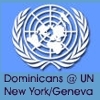Harmony with Nature: Respect for Mother Earth
 On April 20, the UN General Assembly held an interactive dialogue on the theme “Harmony with Nature” to commemorate International Mother Earth Day. Through a resolution sponsored by the Bolivian representative, and adopted by the UN in 2009, April 22 is celebrated as International Mother Earth Day, when the countries of the world intentionally focus on respect for the earth, our mother, who sustains us. On April 20, the UN General Assembly held an interactive dialogue on the theme “Harmony with Nature” to commemorate International Mother Earth Day. Through a resolution sponsored by the Bolivian representative, and adopted by the UN in 2009, April 22 is celebrated as International Mother Earth Day, when the countries of the world intentionally focus on respect for the earth, our mother, who sustains us.
His Excellency, Mr. Pablo Solon, the Permanent Representative of Bolivia to the UN, opened the debate with an address quoting from Victor Hugo: “It is a huge sadness that nature speaks and humans do not listen.” He posed and commented on what he believes are three fundamental questions:
- What is nature? Is it a thing, a source of resources, a system, a home, a community of living and interdependent beings?
- Are there rules in nature? Are there nature laws that govern its integrity, interrelationships, reproduction and transformation?
- Are we as states and as a society recognizing, respecting and making sure that the rules of nature prevail?
Mr. Solon noted that nature cannot be submitted to the wills of the laboratory; that science and technology are capable of everything, including destroying the world itself. He commented that “all technologies should be evaluated to gauge their environmental, social, and economic impacts, [and that] the answer for the future lies not in scientific inventions but in our capacity to listen to nature which is ruthless when it is goes ignored.” Following an impassioned plea to respect the earth, our mother, Mr. Solon concluded by quoting Albert Einstein: “The world is a dangerous place, not because of those who do evil, but because of those who look on and do nothing.” Solon’s response: “We have not come here to watch a funeral!”
Four excellent panellists spoke on the debate theme, ‘Ways of promoting a holistic approach to sustainable development in harmony with nature.” While it is not possible to recount the entire debate, the following comments from the speakers are worth recording.
Ms. Vandana Shiva
Quantum Physicist and Philosopher, India
Laws of the market are in direct collision with the laws of nature; harmony with nature is a human imperative not a luxury; earth rights are human rights—protecting the earth guarantees the rights of people to food and water and other necessary elements for our survival; limitless resource exploitation leads to resources grab; around the world today, people are rising up to keep capitalism from grabbing resources; extreme consumption by humans leads to extreme response from nature. Recommended book:“The Death of Nature” by Carolyn Merchant.
Mr. Peter Brown
Professor, McGill University, Canada
We need to take holism seriously; the current neo-classical framework is failing because (1) it is a-scientific (grounded in 17th century science and 18th-century theology); (2) it seeks growth when growth is already too large overall (de-growth is essential); (3) it is grotesquely unfair to the poor, future generations (discounting) and other species; (4) it measures the wrong things; (5) it is unsustainable financially, socially and ecologically; we need to recognise sacred goods and cultural fiduciary obligations across all cultures; we need to take seriously the principles of the Earth Charter. Concluded by quoting Thomas Berry and recommending his publications.
Mr. Cormac Cullinan
Environmental Lawyer, South Africa
We are living on borrowed time; while we have modified our species and natural resources to support our offspring, humanity has reached the point where our modifications of earth’s resources mean our offspring are likely not to survive in the future; our transition in thought and actions should account for millions of years, not just a year or decade; the current transition we are engaged in is unparalleled in the history of our species; we need a major shift in world view—at present everything revolves around humans; humans need to see that the earth is the centre; global legal instruments are not supporting real change, only supporting political positioning; governance systems are not fit for the purpose any longer; Rights of Nature movement calls for respect of the rights of all people to live and participate with nature.
Ms. Riane Eisler
Author, USA
Dynamics of transformative change require fundamental changes—we cannot tack on earth issues to existing systems; “We cannot solve problems with the same thinking that created them” (Einstein); use this time of dislocation to look at the issues of economics of domination/exploitation of people and nature which are not sustainable and will lead to an evolutionary dead end; ‘trickle down’ does not work—akin to paupers eating crumbs from the plate of the rich and being told to be content; old methods of thinking and current paradigms—especially related to economic policies, may be termed ‘Weapons of Mass Distraction’!
Some of the content I had heard before. Some was refreshingly new and persuasive. The combination and a caliber of speakers from varying professional backgrounds and their passionate delivery combined to make this probably THE most inspirational and impressive debate I have attended at the UN during my brief internship. I am indebted to the Bolivian representative for providing the forum where a debate of this quality could take place. Jacqui Ryan, OP (New Zealand)
|
Margaret Mayce, OP (DLC/Amityville)
NGO in Special Consultative Status at the United Nations
Dominican Leadership Conference
211 East 43 St. Rm 704
New York, NY 10017
email: Margaret
Mayce, OP |
|


 On April 20, the UN General Assembly held an interactive dialogue on the theme “
On April 20, the UN General Assembly held an interactive dialogue on the theme “